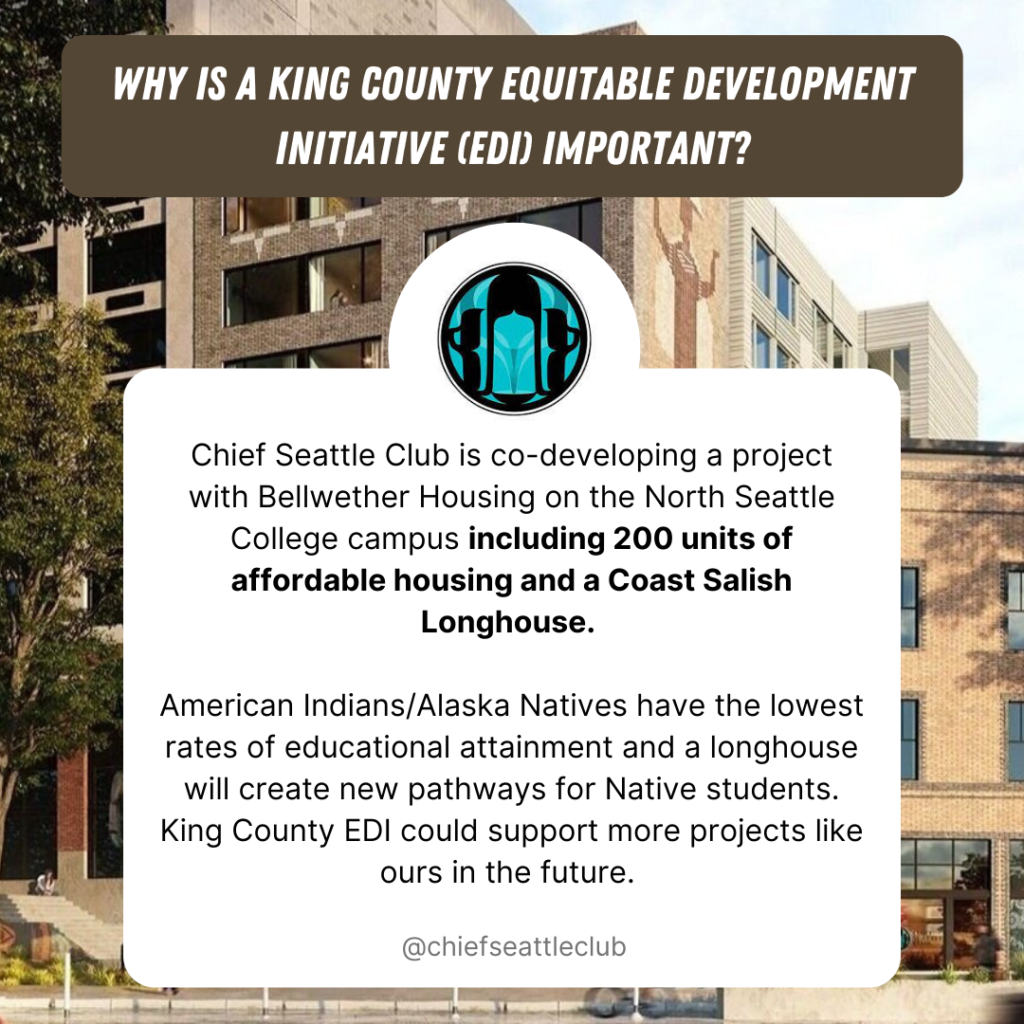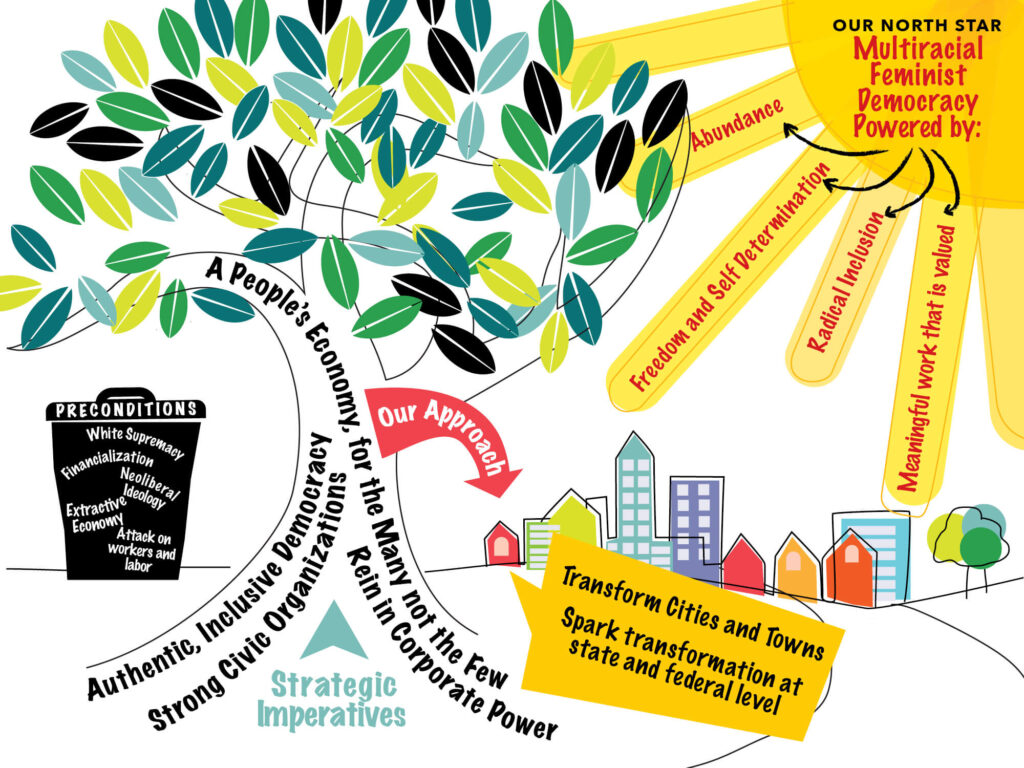Support an Equitable Development Initiative for King County today!
We’re urging the King County Council to support the motion to implement a county-wide equitable development initiative, which will begin discussion on February 2nd. Join the Movement.
Over the last year, a group of BIPOC-led community organizations throughout King County have crafted a vision for long-term stability of our neighborhoods through community-driven and owned development that is not vulnerable to speculation.
Why we need an Equitable Development Initiative at King County:
While the City of Seattle has offered funding and opportunities for BIPOC communities to lead their own land development projects (primarily through Seattle’s Equitable Development Initiative) in the last few years, communities outside Seattle that are also greatly impacted by rapid gentrification and displacement do not have similar resources.
In addition, most capital financing for development is only for affordable housing; to create community anchors for families, we need resources for communities to develop their own culturally responsive and intergenerational solutions to meet their small businesses, child care, cultural centers, social services, and recreation needs. A King County EDI can meet these needs.
Sign up to stay in the loop on how to take action at King County.
In the News
Seattle’s Heating Oil Tax: A Missed Opportunity for Environmental Justice
Via South Seattle Emerald – “The tax intends to disincentivize oil heat so that homeowners can transition to alternative systems, and use the revenue gained to help relieve the burden on low-income households,” said Debolina Banerjee, climate policy analyst at Puget Sound Sage.”
“For the high-income and moderately high-income households, it’s easier for them to transition and avoid the tax.” They make this investment and quickly see a payoff on their heating bill. “Low-income households,” Banerjee continued, “get stuck with the extra burden.” These households rarely have the cash or credit score to upgrade their heating system. And landlords lack the incentive to do so as long as their renters are left to foot the bill.” Read More.
Community Corner
Check out our national affiliate Power Switch Action’s Long-Term Agenda to Collective Liberation. Between 2017 and 2020, the leaders of our network and national staff embarked on a long-term agenda process to understand the conditions in which we are operating, imagine what a people-and planet-centered economy looks like, and find strategies to get us there.
The Snoqualmie Tribe asks for support to protect their most sacred site. An astonishing 1.5 to over 2 million people visit Snoqualmie Falls a year. With the increase in recreation and growing allure of Snoqualmie Falls, the tribe that considers this area sacred says the land is being “loved to death.”
photo from Power Switch Action



